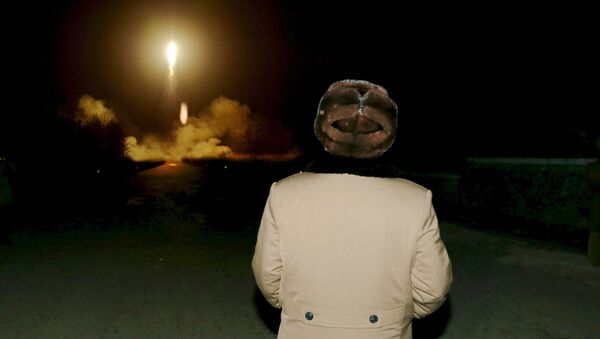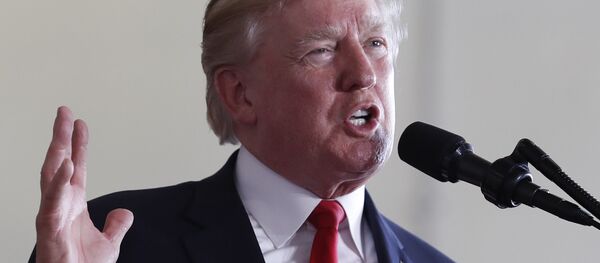According to the results of a poll held among the country’s residents, over a half of population support the idea that the country should possess nuclear weapons.
The lawmaker from the Liberty Korea Party Yoon Young-seok said that the population wants to see a better balance of power between the South and the North.
Radio Sputnik discussed the issue with senior associate professor of international relations at Tokyo's International Christian University, Dr. Stephen Nagy.
"At this moment the South Koreans are debating whether a nuclear arsenal is the best way to move forward to deal with the challenges of a nuclearized North Korea. Policy makers as well as advisers to the President have said that it might be a right decision to move forward with the nuclearization of South Korea. However there are some serious drawbacks in terms of how North Korea would respond to it and how other neighbors within the region, such as China, Japan and even Taiwan would respond to a nuclear South Korea," he told Sputnik.
In terms of looking at the necessity of such measures, in reality a nuclearized South Korea really would not provide any more protection for the South Koreans in dealing with the North, he further said. When we look at North strategic advantage on the Peninsula, it is not based on nuclear weapons, it is the reality that along the border between North and South Koreas there are a million of North Korean troops, there are conventional weapons that they can unleash, as North Korea usually mentions, on South Korea within minutes in case of an attack on Pyongyang.
This conventional strategic advantage really puts North Korea in a position of superiority towards the South and makes this idea of acquiring nuclear weapons not really a logical choice of how to deal with the northern neighbor.
South Koreans seem to be also wary of President Donald Trump’s isolationist rhetoric and his calls for Asian allies to shoulder more of the defense burdens borne by the US military.
"Trump’s ‘America-first’ policy has triggered this kind of public sentiment," said Moon Chung In, a top national security adviser to South Korean President Moon Jae In.
"Yes, this is the driving factor with the election of a new President in the US. In his campaign rhetoric he talked about reorganizing, re-shifting, re-balancing US' aims in the region and, in particularly, talked about allying the South to arm nuclearly, as well as Japan. We also have great doubts, South Korea, Japan and other countries within the region don't know where the Trump administration stands in terms of its commitments regarding to alliances," Dr. Stephen Nagy said.
These alliances are long-standing, they are structural, they are institutional, there are in-depth relations between soldiers and institutions, between the US, South Korea and other partners within the region, he explained. But again, Trump's focus on having allies pay their fair share, his inability to think strategically about the region, his more sort of an approach to dealing with North Korea has given the partners within the region, particularly South Korea, doubt. Now they are more inclined to take their security more seriously and more independently and try to deal with North Korea on terms that are more favorable to their strategic advantages.
"We are already seeing it. When we look at the North dealing with the pressure from the Trump administration, as well as other partners within the region, they have reached out to both China and Russia in different ways. Both of these countries are interested in getting the US out of the region and having more of an independent influence on the Peninsula," he concluded




